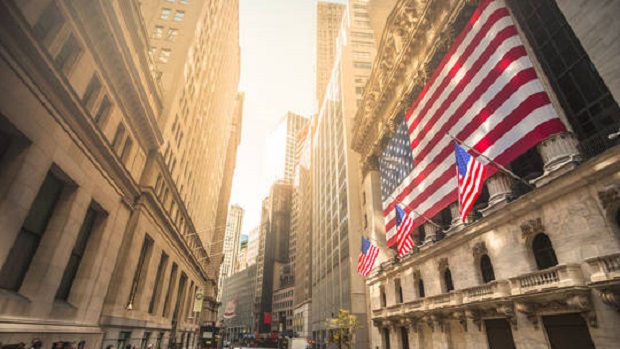SICK MAN OF THE WORLD NOW, U.S. CAN ONLY WATCH AS ITS SELF-INDULGENT BANKING SYSTEM COLLAPSES – CLOSE TO 190 BANKS COULD SHUTTER DOWN, FACE MASSIVE DEPOSIT & INVESTOR RUNS
Close to 190 U.S. banks could collapse: USA Today
NEW YORK — A study on the fragility of the U.S. banking system found that 186 more banks are at risk of failure even if only half of their uninsured depositors decide to withdraw their funds, reported USA Today on Thursday.
“With the failure of three regional banks since March, and another one teetering on the brink, will America soon see a cascade of bank failures?” asked the report.
Bloomberg has reported that San Francisco-based PacWest Bancorp is mulling a sale, with its values down by large margins. Last week, First Republic Bank became the third bank to collapse, the second-largest bank failure in U.S. history after Washington Mutual, which collapsed in 2008 amid the financial crisis. Silicon Valley Bank and Signature Bank demised in March.
“Regional banks are failing because the Federal Reserve’s aggressive interest rate hikes to tamp down inflation have eroded the value of bank assets such as government bonds and mortgage-backed securities,” noted the report.
READ MORE: First Republic bank seized by US regulators
The Fed raised interest rates by a quarter of a percentage point on Wednesday in the 10th straight move in the fight against rapid inflation.
Most bonds pay a fixed interest rate that becomes attractive when interest rates fall, driving up demand and the price of the bond, according to the report. On the other hand, if interest rates rise, investors will no longer prefer the lower fixed interest rate paid by a bond, thus driving down its price.
Many banks increased their holdings of bonds during the pandemic, when deposits were plentiful but loan demand and yields were weak. For many banks, these unrealized losses will stay on paper. But others may face actual losses if they have to sell securities for liquidity or other reasons, according to the Federal Reserve Bank of St. Louis.
“The recent declines in bank asset values very significantly increased the fragility of the U.S. banking system to uninsured depositor runs,” economists wrote in a recent paper published on the Social Science Research Network.
A run on these banks could pose a risk to even insured depositors — those with 250,000 U.S. dollars or less in the bank — as the Federal Deposit Insurance Corporation’s (FDIC) deposit insurance fund starts incurring losses, the economists wrote.
Of course, this scenario would play out only if the government did nothing. “So, our calculations suggest these banks are certainly at a potential risk of a run, absent other government intervention or recapitalization,” the economists wrote. XINHUA / ANN
US banking crisis deepens
Regional lender PacWest Bancorp has become the latest American bank to be caught up in the worst crisis in the sector since 2008. The bank has confirmed it is in talks with potential partners and investors about strategic options, following a 60% stock rout.
Shares in the bank nosedived in after-hours US trading on Wednesday over reports the Los Angeles-based lender was mulling a sale. PacWest’s shares were down as much as 48% in early trading on Thursday.
“The bank has not experienced out-of-the-ordinary deposit flows following the sale of First Republic Bank and other news,” PacWest stated on Wednesday. “Our cash and available liquidity remain solid and exceeded our uninsured deposits,” it added.
According to the lender, discussions with potential buyers and investors “are ongoing” and the company will continue “to evaluate all options to maximize shareholder value.”
People familiar with the matter told Bloomberg that PacWest has been considering a breakup or a capital raise. A buyer would potentially have to book a big loss marking down some of the bank’s loans, sources said.
PacWest’s Wednesday selloff followed US Federal Reserve Chair Jerome Powell’s announcement that authorities were closer to containing the turmoil that has gripped the banking sector. Powell claimed that the government seizure and sale of struggling First Republic Bank to JPMorgan Chase was “an important step toward drawing a line under that period of severe stress” for regional lenders.
First Republic became the fourth US lender to collapse this year, following Silvergate Capital, Silicon Valley Bank, and Signature Bank.
Meanwhile, chief market analyst at KCM Trade, Tim Waterer, told Bloomberg that the Fed’s statement offers little in the way of confidence for the market. “Despite the best efforts by Jerome Powell to calm the market, there is nothing to suggest that the banking crisis is at an end,” he claimed. RT
XINHUA/ANN / RT.COM
.
